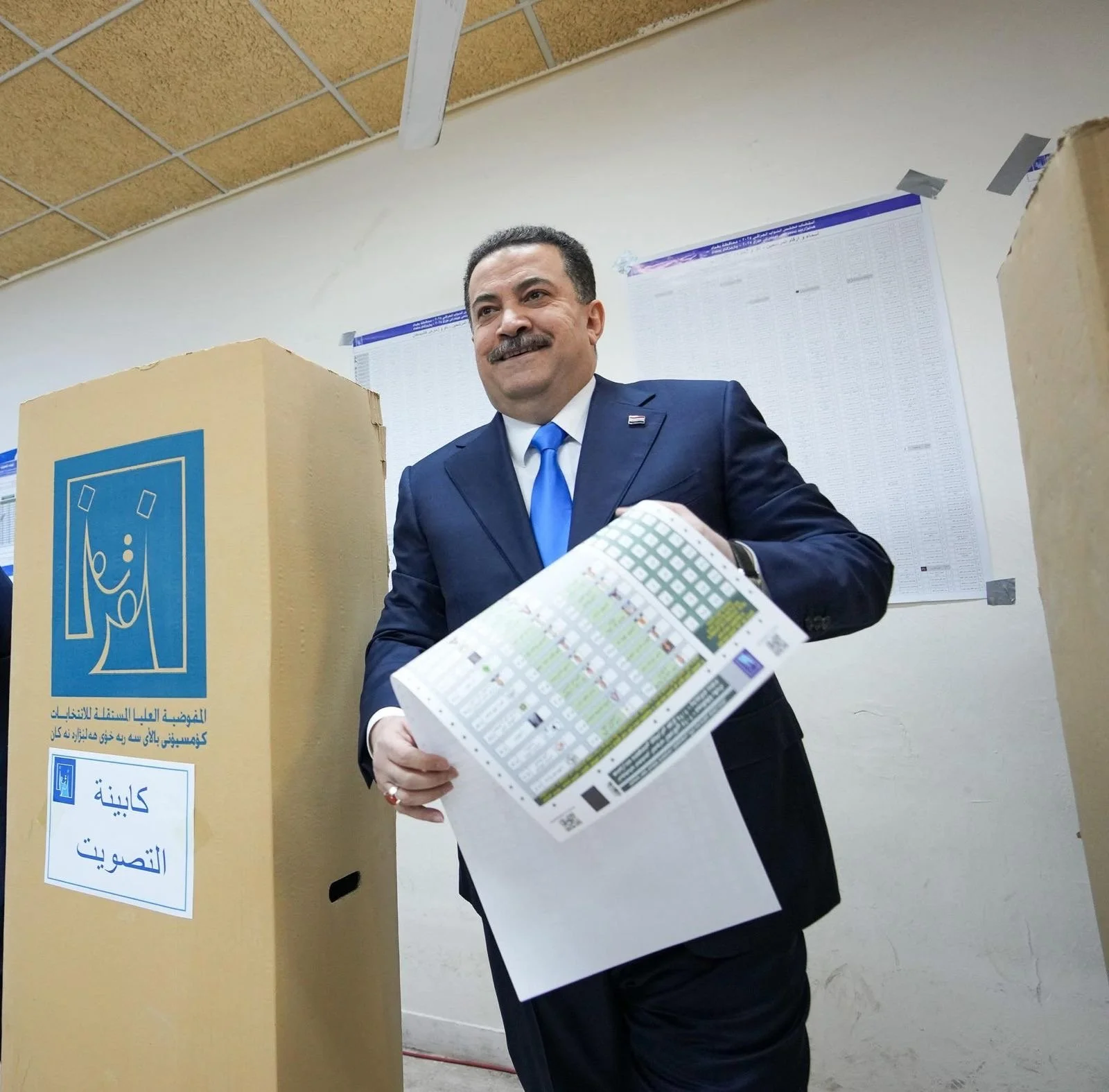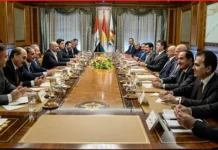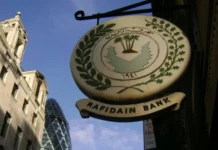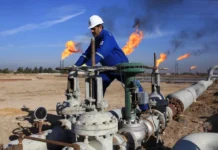Tishwash: AFP: Sudani coalition achieves major victory in Iraqi elections
Agence France-Presse reported on Wednesday that the coalition of Iraqi Prime Minister Mohammed Shia al-Sudani achieved a major victory in the parliamentary elections held on Tuesday.
An official close to the Prime Minister told AFP that the Development and Reconstruction bloc had achieved a remarkable success, while two other sources indicated that the list had won the largest parliamentary bloc with nearly 50 seats or more.
Sudani has emerged as a major political force in Iraq since coming to power three years ago, with the support of the Coordination Framework Alliance, which includes Shiite parties and factions close to Iran.
This success comes in the context of a tense political landscape, where different blocs are seeking to form alliances to secure a stable parliamentary majority. link

Tishwash: The International Monetary Fund expects stable and accelerating growth in the Iraqi economy until 2030
The Iraqi economy is poised for a more stable growth trajectory in the coming years, following a slight contraction of 0.2% in 2024, according to data from the International Monetary Fund.
According to the “Al-Sharq” website, the fund predicted that the country’s economy would return to growth in 2025 at a rate of 0.5%.
The IMF estimates show a marked acceleration in the pace of growth starting from 2026 to 3.6%, the same rate expected for 2027, before rising to 3.9% in 2028, and then 4.1% for both 2029 and 2030.
The International Monetary Fund predicted last October that Iraq would rank fourth among the largest economies in the Arab world by 2030.
According to the report, Saudi Arabia tops the list as the largest Arab economy with a GDP of $1.6 trillion, followed by the United Arab Emirates in second place with about $764.8 billion, and then Egypt in third place with $589.8 billion.
Iraq comes in fourth place, with an expected GDP of $345.9 billion, continuing its advanced position among Arab economies supported by the energy and oil sector and reconstruction and development projects, ahead of Algeria, which came in fifth with a total of $309 billion, followed by Qatar in sixth place with $296.8 billion, Morocco in seventh place with $241.9 billion, and then Kuwait in eighth place with $190.1 billion.
The last places on the list were occupied by the Sultanate of Oman with a total of $133.3 billion, followed by Jordan in tenth place with $73.6 billion.
The report indicated that Arab economies are experiencing varying paths of growth, driven by economic reforms, expanding investments in renewable energy, tourism, and technology, along with efforts to diversify away from dependence on oil as a primary source of revenue. link
************
Tishwash: Iran is boiling over internally… and workers are in the streets demanding their rights.
More than three thousand contract workers at the South Pars gas complex demonstrated in front of the complex’s central building in Asaluyeh, demanding the implementation of a wage unification plan, a change in the work pattern, and the complete elimination of the role of contracting companies.
A large group of contract workers from the twelve refineries belonging to “South Pars” participated today, Tuesday, November 11, in protests in the streets leading to the central headquarters of the complex in Asaluyeh, to demand their professional and living rights.
These workers, who belong to the categories of workforce, contracting companies, and contractors in the various stages of the South Pars project and the Fajr Jam refinery, raised banners calling for “achieving fair wages” and “abolishing the contractors system.”
In a joint statement, the workers demanded a review of the job classification plan with the aim of standardizing the salaries of contract workers with those of official employees.
The demands also included changing the work schedule for administrative staff and support teams to a “two weeks on, two weeks off” system, regulating the status of non-owner rental car drivers, paying air travel allowances for contracted workers, and restoring social services and benefits such as accommodation in residential complexes.
One of the workers participating in the gathering said: “For years, despite repeated promises, the job classification plan in ‘South Pars’ has not been implemented properly, and there is still a large gap between the wages of contract workers and official employees.”
Some workers also saw the complete abolition of the contractor system as the only way to achieve job fairness.
An employee of the twelfth phase of “South Pars” stated that the presence of contractors leads to violations of workers’ rights, with insufficient oversight of the wage payment mechanism.
As the Iranian regime continues to fail to meet the demands of various groups, the past few days and weeks have witnessed a series of strikes and protests by workers, employees, and retirees across the country.
On November 2, retirees from the telecommunications sector took to the streets in several cities, and nurses from the University of Medical Sciences in Kermanshah, workers from the “Makian Alvan” slaughterhouse in Rey, and employees of the “Falat Qara” oil company on Lavan Island organized protest rallies against the disregard for their demands.
On October 31, oil sector workers held a demonstration in front of the presidential office in Tehran, renewing their protest against unfulfilled government promises regarding the elimination of contractors and intermediaries.
These workers, who came from the oil-rich provinces to the capital Tehran, confirmed that despite the promises of Masoud Pezeshkian’s government, none of the promises have been fulfilled so far. link





